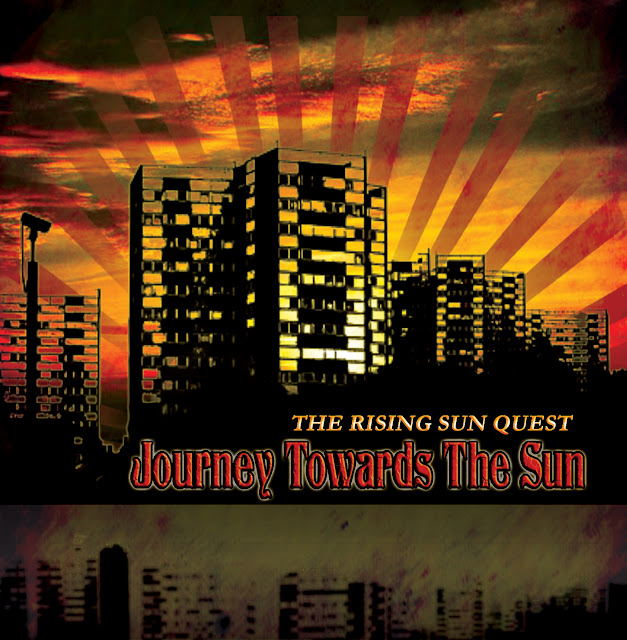STAMFORD - Rapper Chubb Rock joined a heated discussion yesterday about hip-hop.
Titled "Hip-Hop as a Positive Force in the Community," the South End event launched the Connecticut Talent Explosion at the community agency CTE Inc.
Despite the title, panelists did not all have a rosy view of hip-hop's influence on youth.
Robin Simmons, a minister at Cornerstone Church of Christ in Stamford, told the panel and audience of about 50 people that he was shocked to be included in the conversation.
"I happen to be the only individual up here who does not promote hip-hop at all," Simmons said. "The origins of hip-hop are totally contrary to Christian beliefs."
That assertion made for some lively debate.
Two Westhill High School teachers on the panel took issue with Simmons' indictment of the genre. The teachers, Joe Celcis and David Wooley, comprise the hip-hop act Cyphernauts.
"Hip-hop is the result of an evolution of African culture," Celcis said. "When we lose that understanding, it's easy to dissociate ourselves from it and make it the whipping boy," blaming the music for problems in society.
Simmons said one of hip-hop's founders, Afrika Bambaataa, and Zulu Nation, the organization the artist formed to acquaint black youth with their African roots, encourages self-glorification, which contradicts the minister's belief in the glorification of Jesus. Even so, he said he respected some hip-hop artists, such as Chubb Rock. Simmons said he even imitated the rapper once at a talent show in his teens.
"There are some positive hip-hop artists out there," Simmons said.
Wooley took issue with Simmons' depiction of hip-hop's origins and Bambaataa's intentions.
"Hip-hop stood as a reaction to gang warfare," he said. "Afrika Bambaataa tried to teach a lesson of self-respect."
"What some people need to understand is that hip-hop and the rap industry are two different things," Celcis said. "The rap industry wants to destroy black identity, because if you don't know who you are, you'll spend money for anything you're told to buy. They did the same thing with jazz and blues."
Chubb Rock, a Long Island resident who was born Richard Simpson in Jamaica, took the view that consumers drive the music market and adults, particularly parents, need to guide youth to choose positive music.
"We have to deal with the home and deal with the kids, then we don't have to worry about these (negative) records," Rock said.
Other panel members, including Deborah Sewell, president and chief executive officer of the Yerwood Center, and Terrell Inabinett, a Stamford High School senior and second vice president of he NAACP's youth branch, also saw a positive side to hip-hop.
Before the discussion, Sewell said that she worked for 10 years with hip-hop artists to raise money for low-income communities. When kids of every race around the world identify with hip-hop music, she said, adults need to be able to talk to youth about the music rather than censoring the genre or rejecting kids who listen to it.
Like Rock, Sewell asserted that record sales dictate what music gets produced. A recent sales battle, in which Kanye West and 50 Cent each released albums on the same day, gave Sewell hope.
"Kanye came out on top, and his music is a lot more positive than 50 Cent," Sewell said.
Inabinett, 17, said he's a fan of hip-hop but is not interested in most acts with negative messages. He placed the onus on artists and music fans to choose positive messages.
"As for 50 Cent, he spent most of his life growing up on the streets," Inabinett said. "He is a father. He should be trying to do the best for his child, not for everyone else."
Jere Eaton, president of NAACP's Stamford branch, was in the audience. Eaton is a former Yerwood Center board member who railed against a spring basketball fundraiser planned by Sewell, which was to feature controversial rappers Jadakiss and his crew, D-Block.
The Yerwood event was canceled after more than 60 people called in concerns about the slated performers. Eaton spoke during time allotted for public questions.
"I think a key problem is we're not holding the people accountable who are benefiting from rap, and they probably don't look like us," Eaton said, referring to music industry executives.
Sewell responded, "Instead of going after an industry so huge, I believe in starting in our community, our homes. Start by talking to our children."
Rock said he was disappointed that more people did not attend the discussion.
"This place should have been filled to the rafters," Rock said of the gym at CTE on Woodland Avenue. To residents who didn't take part in the talk he said, "You should have been here. You are failing us."
Deborah Wright, CTE's vice president of finance, said she contacted Rock by e-mail asking him to take part in yesterday's event. She said she was surprised that he responded within about a half-hour.
"He has been phenomenal," she said.
Rock said before the discussion that he participates in many community events.
"I go into prisons, youth facilities," Rock said. "Before I went into music I wanted to get into social work."
Rock rose to fame in the 1990s with the hits, "Just the Two of Us," and "Treat 'Em Right." He and another hip-hop artist, Dana Dane, who had a 1987 hit with "Cinderfella Dana Dane," performed later in the day, as did 10 young singing and dance acts. The day also featured art and science projects by children in CTE's after-school and summer camp programs.Copyright © 2007, Southern Connecticut Newspapers, Inc.
-




No comments:
Post a Comment